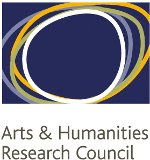Disrupting the Narrative: Gender, sexuality and fractured form in diasporic writing and performance
Seminar: Ben Pimlott Building, Goldsmiths, University of London , Wed, 29 Apr 2009 17:30:00 BST- Anthony Joseph on Lord Kitchener
- Helen Carr on the ‘Verse Revolutionaries’
- Anna Furse on ‘The Art of Memory’
This is a Pinter Centre event and is part of the Beyond the Linear Narrative project.
May 6th:
Les Murray reads from and discusses his work
Reading and Discussion: Ben Pimlott Lecture Theatre, Wed, 06 May 2009 18:30:00 BSTLes Murray, widely regarded as Australia’s greatest living poet, reads from and discusses his work during a rare and brief visit to the UK.
This is a Richard Hoggart lecture series event, co-hosted by the Pinter Centre and the English and Comparative Literature Dept.
May13th:
Narratives of Home: Notions of belonging in African diasporic performance.
Presentations and Discussion: Ben Pimlott Building, Wed, 13 May 2009 17:30 BST Four presentations, followed by group discussion, focussing on the contested notion of 'Home' in diasporic writing and performance.Speakers/Titles
Dr Sam Kasule(University of Derby) – Title: “Shifting Notions of Home, Identity and Belonging in Rose Mbowa and Kwame Kwei-Armah’
Pat Cumper (Artistic Director, Talawa Theatre Company) – Title (TBC)
Gabriel Gbadamosi (AHRC Fellow, Goldsmiths): “The Ambassador's Residence - households as strongholds of Diasporic Identity”.
May14th, 4pm, Goldsmiths, Univeristy of London: NEW ADDITION
In Association with PEN:
Tahar Ben Jelloun
Thursday May 14, 4pm
Senior Common Room
PEN and the Pinter Centre AHRC project ‘Beyond the Linear Narrative’ present:
Tahar Ben Jelloun
the Francophone Moroccan prize-winning novelist, author of This Blinding Absence of Light (2004), Racism Explained to My Daughter (1998), and now Leaving Tangier (Arcadia Books)
in conversation with Julian Evans (Chair of English PEN’s Writers in Translation Committee)
“Leaving Tangier… is a novel all the more needed for being so lucid and involving, , and a tribute to the author’s great talent that he transcends these many torn destinies and leaves the reader with a valuable sense that his characters’ lives may not have been in vain, because they have taught him something” – Julian Evans, Guardian
All welcome
One of the greatest of contemporary writers in the French language, Tahar Ben Jelloun was born in Fez, Morocco in 1944. He attended a bi-lingual primary school, then a French secondary school in Tangier, and afterwards to the University of Rabat where he studied philosophy. Here, in 1966, his studies were interrupted by the repressive hand of King Hassan II: along with 94 other protesting students shot at by the police, he was sent to first one internment camp, then another. During those long eighteen months, an experience he drew on in the novel which won the IMPAC prize for 2004, This Blinding Absence of Light, he found sustenance in James Joyce. Having asked his brother for the longest book he could find, a copy of Ulysses was smuggled in to him and he discovered in its pages an inspiring ‘liberty’. It was in the camp that he wrote his first poems: several volumes were to follow.
Released, Ben Jelloun worked as a teacher of philosophy. But when the Government declared that the teaching of philosophy was to be Arabized, he decided to leave for Paris. His decision to write in French rather than Arabic was based on his sense that the French language provided a richer tradition of fiction. His novels, however, constantly bring him back to a Morocco setting. Some critics have also noted that his ‘narrative acrobatics’ find their source in Arab storytelling.
Always politically engaged, Ben Jelloun in 1984 wrote a book on racism in France – French Hospitality. In a sense this essay was brought up to date by Racism Explained to My Daughter of 1998. Where the first was much criticized; the second became a bestseller. His novel The Sand Child (1985) which probed the constraints on women living under traditional Islam through a heroine brought up by her parents as a boy, found its sequel in The Sacred Night (1987) – a book which teems with migrants, prostitutes, the imprisoned and illiterate and moves from impotence to rebellion. It won the coveted Prix Goncourt.
An exceptional and prolific novelist and essayist, Ben Jalloun thinks of himself as ‘a Moroccan writer of French expression’, Ben Jelloun after 9/11 noted that Islam is too often understood as a caricature: we tend to ‘attribute to religion the errors and fanaticism of human beings’. He now returns regularly to Tangier, the city which has for long fed his imagination.




No comments:
Post a Comment